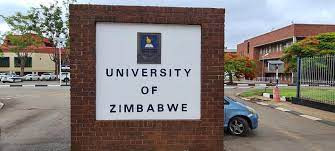
Certain audio messages, which went viral on social media prompted a revisit of this issue once discussed here.
MIRIAM TOSE MAJOME
The allegations are that a young woman committed suicide after her boyfriend posted indiscreet videos of her on the internet.
Whether the story is true or not is not as relevant as the issues it raised.
What does the law say about pornography and even more so revenge pornography?
Is there any recourse for victims given that pornography at whatever level is illegal in Zimbabwe?
Revenge pornography, also called non-consensual pornography, is the unauthorised sharing and distribution of sexual images of another person without their consent.
It is often committed by ex-lovers to spite, hurt and humiliate their victim and maximise shame.
- Chamisa under fire over US$120K donation
- Mavhunga puts DeMbare into Chibuku quarterfinals
- Pension funds bet on Cabora Bassa oilfields
- Councils defy govt fire tender directive
Keep Reading
In extreme cases, the graphic images are sent to the victim’s family and friends and in the worst cases may be upload them onto porn websites where they give their contact details in order to maximise the nuisance and damage
The law
Section 13 of the Censorship and Entertainments Control Act states that the importation, printing, publishing, manufacturing, displaying, selling, offering, keeping for sale any publication, picture or record or playing pornographic material in public is prohibited.
Of importance for these present purposes are the aspects of manufacturing and distribution.
A victim of revenge porn is also an accomplice to the crime.
Consenting to make a sex tape and participating in the film is illegal and is not about consent.
Manufacturing any pornographic content is a crime even if it is consensual.
A victim, who endures the shame and humiliation of revenge porn is not exonerated of the crime merely on the basis that they were violated by the non-consensual sharing of the content.
If the State decides to prosecute the case, all the manufacturers of the pornographic text will be liable in terms of section 13.
In some countries with advanced information technology legislation, revenge pornography has been isolated and criminalised.
Zimbabwe has no stand-alone revenge pornography laws, but victims can get recourse through other delictual claims and sue for damages incurred such as humiliation, pain and suffering.
Censorship Board
The Censorship and Entertainments Control Act (Chapter 10.04) is relevant because it oversees the quality of content to ensure it remains within the bounds of decency.
It is a criminal offence to import, distribute and publish films or material that is not approved by the Censorship Board.
The board has the power to examine publications, books, pictures, films or songs and generally to decide what is or what is not suitable or decent enough for public consumption.
Officially banned content is published by notice in the Government Gazette.
The board considers objections to its decisions.
It plays an advisory role to the Home Affairs ministry on the propriety and decency of public entertainment and publications meant for public consumption.
The minister may override the board and set aside or vary its decisions.
Issuance of entertainment licences
The board issues entertainment licences.
No person is allowed to perform or permit public entertainment acts unless such acts have been approved by the board.
The board shall not approve any public entertainment which in its opinion is contrary to good morals and public decency.
However, the board sometimes allows the performance of questionably raunchy public entertainment acts.
Licences can be withdrawn for breach of the licence terms of issuance.
Exemptions, certificates and licences can be revoked at any time at the board’s discretion.
The board considers objections from applicants and members of the public over any of its decisions.
Possession of prohibited content
The Act prohibits people from keeping “without lawful reason” publications, pictures or recorded material that are indecent or obscene.
A great number of people, especially men, keep loads of pornographic material on their phones.
Some people’s phones, particularly their media galleries, could send them straight to the gallows.
The mere possession of pornographic content is a crime.
Manufacturing, possession and distribution of pornographic content are very serious crimes for which perpetrators can be arrested.
Employers lose out in time wastage, as employees with unrestricted internet access work fewer hours as a result of surfing the internet looking for porn sites.
People have lost jobs and families and entire careers gone down the drain over a few pictures carelessly left on a computer’s desktop or on a shared computer.
In some companies the penalty for viewing pornographic content is instant dismissal.
Definition of indecent and obscene
A thing or act is deemed as indecent if it has the tendency to deprave or corrupt the minds of persons who are likely to be exposed to it or to be influenced in any way.
The Censorship Board’s approval is required if entertainment generally causes public outrage or is repugnant to persons who are likely to experience it.
This applies to images or films depicting horror, cruelty or violence.
Other than morality issues, the board also restricts publications and entertainment likely to be contrary to the interests of defence, public order and security and the economic interests of the State.
Help for the victim
The first thing to do is to immediately flag and report the abuse to the host site.
These days, everything is taking place on social media sites like Facebook, WhatsApp, YouTube, Twitter etc.
Wars are being fought and babies born on social media with up to the minute largely unnecessary details being given.
Victims will have to describe the details of the abuse.
Most decent sites usually pull the offending media down and close or suspend the abusers’ account.
The victim should make a police report and be prepared to also take some responsibility for the manufacturer of the pornographic media.
However, this should not deter them from seeking justice for themselves.
The penalty in such a case would be much less than for the revenge porn.
Despite whatever shame they may feel the victim should seek compensation and civil damages from the abuser











